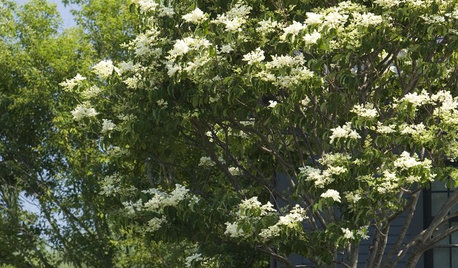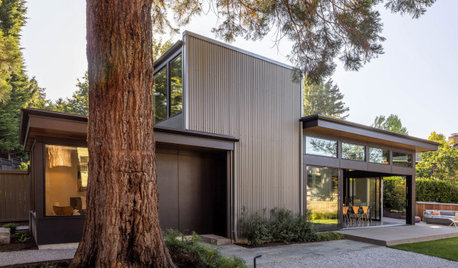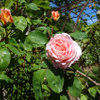question for (especially) Melissa_thefarm
bart_2010
9 years ago
Related Stories

LIGHTING5 Questions to Ask for the Best Room Lighting
Get your overhead, task and accent lighting right for decorative beauty, less eyestrain and a focus exactly where you want
Full Story
DOORS5 Questions to Ask Before Installing a Barn Door
Find out whether that barn door you love is the right solution for your space
Full Story
GARDENING GUIDESNo-Regret Plants: 5 Questions Smart Shoppers Ask
Quit wasting money and time at the garden center. This checklist will ensure that the plants you're eyeing will stick around in your yard
Full Story
KITCHEN DESIGN9 Questions to Ask When Planning a Kitchen Pantry
Avoid blunders and get the storage space and layout you need by asking these questions before you begin
Full Story
Easy Green: 6 Must-Answer Questions Before You Buy
Thinking about buying ecofriendly furniture? For a truly environmentally conscious home, ask yourself these questions first
Full Story
REMODELING GUIDESConsidering a Fixer-Upper? 15 Questions to Ask First
Learn about the hidden costs and treasures of older homes to avoid budget surprises and accidentally tossing valuable features
Full Story
ORGANIZINGPre-Storage Checklist: 10 Questions to Ask Yourself Before You Store
Wait, stop. Do you really need to keep that item you’re about to put into storage?
Full Story
FEEL-GOOD HOMEThe Question That Can Make You Love Your Home More
Change your relationship with your house for the better by focusing on the answer to something designers often ask
Full Story
WORKING WITH PROS12 Questions Your Interior Designer Should Ask You
The best decorators aren’t dictators — and they’re not mind readers either. To understand your tastes, they need this essential info
Full Story
WORKING WITH PROS10 Questions to Ask Potential Contractors
Ensure the right fit by interviewing general contractors about topics that go beyond the basics
Full StoryMore Discussions









nikthegreek
bart_2010Original Author
Related Professionals
Elwood Landscape Architects & Landscape Designers · Tempe Landscape Contractors · Fairview Landscape Contractors · Golden Landscape Contractors · Kettering Landscape Contractors · San Carlos Park Landscape Contractors · Forest Hill Landscape Contractors · Golden Valley Landscape Contractors · Cooper City Swimming Pool Builders · Placentia Swimming Pool Builders · San Antonio Swimming Pool Builders · Rosemont Siding & Exteriors · Fairfax Siding & Exteriors · Lenoir Siding & Exteriors · St. Louis Siding & Exteriorsnikthegreek
melissa_thefarm
User
nikthegreek